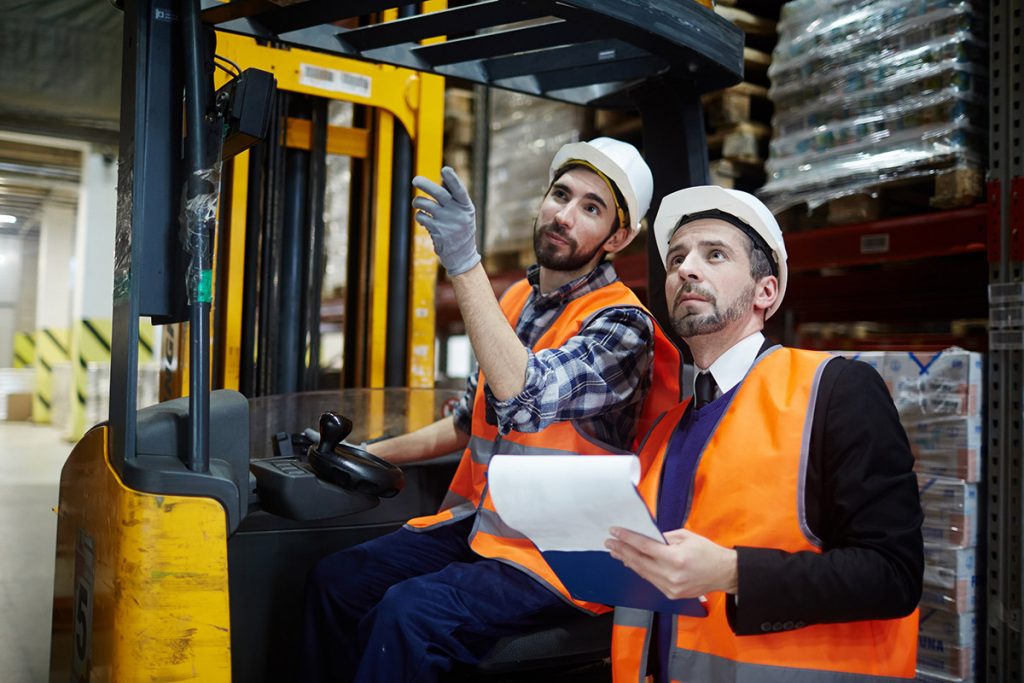No company needs the logistical headache of running a parallel operation outside of its core business. When it comes to supply chain logistics, one of the most advantageous decisions a business can make is to employ a pallet pooling system. This single decision will not only save companies the initial cost of purchasing pallets, but also free them up from constantly procuring, allocating, and disposing of a fleet of pallets, reducing their overall Total Cost of Business (TCOB). The savings in money and time can instead be invested in the company’s future goals and growth.
The logistics benefits and cost reductions a company gains from using a pallet pooling system are so obvious that a business may not spare much thought to the type of pallet employed by the pool, even though the pallets are vital to the operation. Pallets play a role throughout the entirety of the supply chain, from manufacturing to distribution to retail displays. While wood pallets have been used for shipping heavy loads for decades, the advantages of plastic pallets over wooden pallets can result in additional savings, further reducing TCOB. Plastic pallets are the superior choice over wooden platforms for modern supply chains looking to reduce costs and streamline logistics.
Why Wood Pallets Are Outdated for Pooling
Wood is a natural material that varies in density, weight, and dimension. It absorbs moisture from the surrounding environment, adding to the weight of wooden pallets, which are up to 35% heavier than plastic ones, and increasing fuel costs during shipping. The absorbed moisture also creates an environment that’s friendly to bacteria and other microorganisms. And, worker safety is a concern with wood pallets. Not only are they unwieldy to lift by a single employee, but splinters, nails, and sharp edges can cause workplace injuries and accidents. Wood pallets can also cause problems even when humans aren’t directly handling the pallets.
Automated Storage and Retrieval Systems (ASRS) are an increasingly common part of supply chains. These computer-controlled systems move products into and out of racks without human intervention and are quicker and more reliable and efficient than human labor. These systems also require less square footage than forklift-friendly aisles do and allow companies to use their storage areas more effectively. However, there are limitations to the contingencies that these systems can be programmed to handle. Wood pallets, in particular, have many potential issues that can result in downtime for an ASRS. These range from broken pallets spilling loads to nails and wood from a damaged pallet jamming machinery.
Wood pallets are also conducive to bacteria and provide a refuge for pests to hide unnoticed among the racks where they may potentially contaminate the whole inventory. Government rules, set by the FDA, specify that food transporters must keep food and pharmaceuticals free of contamination by microbes, such as E. coli, salmonella, and Listeria, or by chemical agents used to clean wooden pallets. The space between wood fibers, however, makes sanitizing wooden platforms difficult, requiring either heat treatment or harsh chemicals to kill microbes. Heat treatments require the use of specialized facilities and add time to pallet deliveries when using a pooling system, making them costly. Chemical treatments can cause contamination of products then loaded on the pallet.
This is where plastic pallets have an advantage over traditional wooden ones: They solve all these supply chain dilemmas—and more.
The Advantages of Plastic Pallets Over Wooden Pallets
Some of the top advantages of plastic pallets over wooden pallets for pooling systems include:
- Improved Hygiene: Plastic pallets don’t absorb bacteria, chemicals, odors, or other contaminants the way wood pallets do.
- Lighter Weight: Plastic pallets are easier for workers to lift and transport around warehouses and retail outlets.
- Sturdy Construction: Plastic pallets have no fasteners. This means they have no broken boards that can splinter and tear skin or nails that can cut or skewer flesh.
- Ideal for Automation: All of these factors – particularly their sturdy, unibody construction and consistent dimensions – combine to make plastic pallets friendlier to ASRS than wood pallets.
The advantages of plastic pallets over wooden pallets aren’t confined to warehouses and retail stores, though. Their decreased weight means less fuel consumption when shipping products. Even small fuel savings per load can add up to significant improvements to a company’s overall TCOB and profit margins.
To maximize these savings, you’ll need a pallet pooling system with a pallet durable enough to go through the warehouse, and the loading bay, and still be clean and hygienic enough to then enter a grocer’s freezer aisle. You need the iGPS plastic pallet. The iGPS plastic pallet pooling system provides the only technology and service that can meet those goals.

To get started with iGPS, reach out to our logistics experts today at 1-800-884-0225 or email us at info@igps.net. Our team will walk you through how our innovative shipping options can drastically lower your Total Cost of Business (TCOB).
The iGPS Advantage for Your Plastic Pallet Pooling Systems
Pallet pooling systems allow industries to move their products through the supply chain as efficiently as possible, without the costs and difficulties of managing an in-house pallet network. Employing a pallet pool ensures you have the exact number of pallets on hand when needed—even during seasonal spikes—and alleviates the need to store them when they are not.
Produce, meat, dairy, egg, beverage, and pharmaceutical businesses are all choosing iGPS plastic pallets to maximize the benefits of a pooling system with lightweight, reliable, sustainable, and sanitary plastic pallets.
The industry-leading advantages of the iGPS plastic pallets over wooden platforms include:
- Superior Hygiene and Food Safety: The majority of goods are shipped resting on pallets. If a pallet is contaminated with pests, bacteria, or chemicals, that contamination can be passed on to the products it carries. The iGPS plastic pallet is impervious to rodents or pests and, since there are no wood fibers for chemicals or bacteria to hide in, contaminants can be easily removed.
- Decreased Product Damage: Goods of any sort can be damaged by wooden pallets during shipping due to anything from a loose nail damaging the packaging to improper packing causing product to fall between the slats where it is destroyed when the pallet is moved. The iGPS plastic pallet reduces product damage with a uniform surface and does not have protruding nails or splinters that can rip packaging.
- Improved Employee Safety: The iGPS plastic pallet has no loose nails to snag clothing and flesh. Additionally, whereas wooden pallets are heavy and require two people to lift them, a lightweight iGPS plastic pallet can be carried by a single person (best practice is still to have two due to the size). They can also be lifted by machinery from four directions, reducing the need for manual lifting.
- Lower Shipping Costs: The lighter weight of the iGPS pallet speeds up the process of loading and unloading pallets onto trucks; time is saved at every step in your supply chain. The overall reduced load weight also reduces fuel costs. This reduction of time and energy quickly adds up to significant savings per load.
- Friendlier to Automation: A revolution in automation is changing how we get food to the table, pharmaceuticals to the patient, and goods on store shelves. iGPS plastic pallets feature CBA spec-compliant dimensions, uniform density, and unparalleled strength, making them a better fit for Automated Storage and Retrieval Systems (ASRS) than wooden pallets. And there are no nails or slats that can come free and damage expensive machinery as the pallet is moved through the system.
- Unsurpassed Sustainability: A cradle-to-cradle solution, every part of an iGPS plastic pallet is recyclable. A long-lasting iGPS pallet approaching the end of its lifespan will be recycled into a new pallet. A wooden pallet, on the other hand, typically ends up in a landfill as solid waste. Carbon emissions are also cut per load by the lighter weight of the plastic pallet as it requires less fuel during shipping. The iGPS greenhouse gas calculator offers an estimate of your potential savings.
These advantages maximize the benefits of using a pooling system to manage your supply chain logistics. Pallets are used in every step of the process of delivering fresh foods, household items, and pharmaceuticals to the consumer. Every efficiency that can be added along a product’s path to the consumer adds up to substantial positive savings and reduces TCOB.
The World’s Most Efficient Pallet
Can be used to transport a variety of products from food to steel.
Allow you to easily track shipments through RFID technology.
Meet the highest standards of platform hygiene, according to the FDA’s Food Safety Modernization Act
Are compliant with Consumer Brand Association (CBA) specs
Once iGPS plastic pallets enter your supply chain, their lightweight and reliability will immediately begin having a substantial positive impact on your TCOB. The iGPS pooling system frees your business from pallet management—and the splinters, pests, and bacteria that plague wooden pallets.
